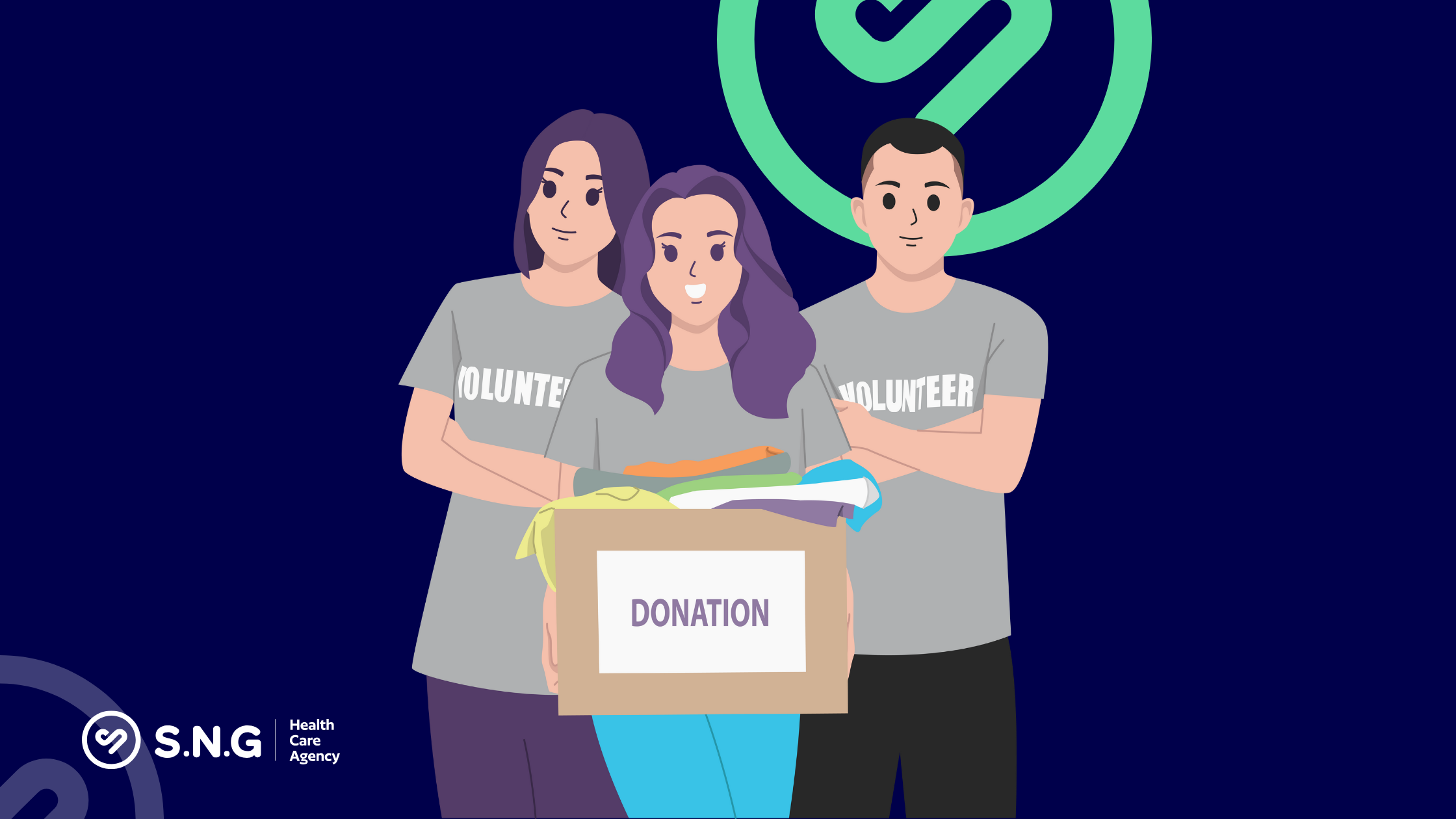It’s coming to the end of National Volunteers’ Week here in the UK, and I thought it would be an opportune time to reflect on how volunteering supports the well-being of our communities and encourages personal growth. Giving your time, energy, or skills can strengthen local support networks, offer much-needed help, and give you a different perspective on the world around you.
I’ve recently spent time volunteering with the Samaritans, and I’m currently gaining experience as a Trainee Counsellor at a charity that supports women who have experienced domestic abuse. Both roles have been incredibly humbling and have made me hugely appreciative of the organisations that rely on volunteers to do such amazing work. These experiences have taught me a lot, reminded me how powerful volunteering can be for developing confidence, learning new skills and in all honesty helped me grow. You also meet the most inspiring, like-minded people along the way.
In this article, I want to share just a few of the reasons volunteering matters (personally, professionally, and socially) backed by real research and some words from our very own team here at SNG Healthcare.
Volunteering strengthens communities
Let’s start with the bigger picture. Across the world, volunteers play a vital role in strengthening communities. In the UK alone, more than 16 million people volunteered formally at least once in the past year, according to NCVO’s 2023 report. From food banks and youth groups to hospital support and local events, these contributions fill essential gaps in public and charitable services.
Globally, the UN estimates that volunteers contribute nearly $400 billion to the world’s economy each year. In many countries, especially those with fewer resources, volunteers are at the heart of public health, education, and disaster response efforts.
It’s about human connection. When people come together to support a cause, whether that’s planting trees, running community workshops, or simply lending an ear to someone in distress, it builds trust and social capital. Communities become more resilient, more caring, and more cohesive.
 Volunteering builds self-awareness and confidence
Volunteering builds self-awareness and confidence
Volunteering is also one of the most underrated tools for personal development. According to a study published in the Journal of Happiness Studies (2017), people who volunteer report higher levels of life satisfaction and wellbeing. And the benefits seem to increase the longer you stay involved.
That doesn’t surprise me. Being trusted to support someone else, especially in moments of vulnerability, is an incredible responsibility. It has taught me so much about myself. I’ve learned to listen without judgement, sit with difficult emotions, and stay grounded in the present. It’s shaped how I relate to others, and deepened my sense of empathy.
Volunteering offers people a safe space to try new things, build skills, and test their abilities outside the pressure of paid work. For those who have been out of work for a while, or are recovering from illness or burnout, volunteering can also be a gentle way to rebuild confidence, re-engage with the world and focus on their own growth in a safe space.
Volunteering benefits our mental and physical health
There’s a growing body of research showing that volunteering is good for your health. Studies from Harvard, the Mayo Clinic, and the UK’s Office for National Statistics all suggest that people who volunteer regularly experience lower rates of depression, reduced stress, and even improved physical health.
A 2020 study in the American Journal of Preventive Medicine found that older adults who volunteered for just two hours a week had lower rates of mortality, higher levels of physical activity, and were more optimistic about the future.
Of course, volunteering isn’t a cure-all, and it’s not always easy. But when it’s done with intention, and the right support, it can be a powerful contributor to wellbeing.
Volunteering can enhance your CV and open doors
Given that we’re in the recruitment business here at SNG Healthcare, it would be remiss of me not to talk about the career benefits of volunteering.
Whether you’re just starting out, returning after a break, or thinking about a change in direction, volunteering can be a brilliant way to gain relevant experience and demonstrate your commitment.
As Belle Doswell, one of our brilliant Perm Consultants, says:
“Volunteering helps build knowledge, experience, and connections, can sometimes lead to new opportunities, and looks great on a CV.”
She’s absolutely right. Volunteering can show potential employers that you’re proactive, community-minded, and open to learning; qualities that are valuable in any sector, but especially in healthcare and social care.
It also allows you to explore different roles and settings. From admin support to mentoring, befriending schemes to board memberships, there are volunteering roles to suit all kinds of interests and availability. If you’re considering a career in care, management, HR, or counselling, there’s no better way to test the waters and develop your skills.
Volunteering is meaningful at every stage of life
You don’t have to be retired to get involved. Volunteering fits into all stages of life.
Some people volunteer after graduating to gain experience. Others pick it up later in life when they have more time or want to give something back. And many of us do bits and pieces throughout our careers, helping at school fairs, joining a local charity board, or simply keeping an eye on neighbours and friends who might need a hand.

Rebecca Bowring-Kingman and Durlston Parents’ Association Volunteers dropping Easter Eggs to New Forest Basics Food Bank
Rebecca Bowring-Kingman, our Operations Director, shared this lovely reflection on her experience volunteering:
“I’ve always been passionate about getting involved in my local school community. I spent time as a Governor at my son’s infant school, where I had the chance to support the school’s direction and be part of decisions that help shape children’s early education. Alongside that, I’ve volunteered for many years (and still do!) on the school’s Parent Association. From organising events to helping with fundraising, I really enjoy being hands-on and working with other parents and staff to make the school a fun, supportive place for all the children. It’s something I find incredibly rewarding and important.”
Rebecca’s experience highlights how volunteering doesn’t always mean formal charity work. Supporting your local school, youth club, or community garden can be just as valuable…and just as rewarding.
Respecting volunteers and making it sustainable
It has to be remembered though that volunteering may be unpaid, but it is far from free. It takes time, effort, commitment and care, and without proper recognition, even the most dedicated volunteers can start to feel invisible, leading to them dropping out.
I’ve experienced this personally. As volunteers, we give our time, energy, and often make real sacrifices, yet it can still be overlooked. At Samaritans, I’ve had shifts where most of the calls were nuisance calls. It’s disheartening to sit through shift after shift of calls where you’re not able to provide the support that you were trained to (and had signed up for). It’s no surprise some volunteers decide to step away because of it.
And it’s not just in mental health services. I’ve heard of food bank volunteers facing ungratefulness, or litter-picking teams seeing the same streets filled with rubbish just days after they’ve cleared them. It takes a toll. Volunteers deserve to feel respected and valued, both by the organisations they support and by the wider community.
One of the other things I’ve come to realise is that volunteering doesn’t have to be all-consuming. It shouldn’t feel like a chore, it’s about finding what works for you. That might mean helping once a week, once a month, or just pitching in when you can. And that’s okay. Establishments that work around volunteers need to ensure they support and show appreciation of their volunteers and be flexible enough to receive that support (in my opinion).
Not everyone has the financial or emotional capacity to volunteer, and that should never be a source of guilt. But if and when you do have the time and energy, it’s worth exploring. Because when it’s the right fit, volunteering can change your life.
Volunteering is one of the few things in life that benefits everyone involved. It helps communities thrive, builds individual confidence, enhances job prospects, and contributes to better health and wellbeing.
So if you’ve ever thought about giving it a go, now’s a great time. There are thousands of organisations who would welcome a helping hand; and you never know where that first step might lead.
Happy National Volunteers’ Week!
Our Sharissa is running 10k for Cancer Research in the Race for Life on the 21st June.
Having lost her aunty to cancer 20 years ago, this is a cause that incredibly close to her and the family.
It would mean the world to get your support in any shape or form. Whether it’s a share of this post, a congratulatory comment, or any spare change – it’s all greatly appreciated!
You can make donations here: https://fundraise.cancerresearchuk.org/page/sharissas-race-for-life-1
Thank you!
And goooooooooooo Sharissa!
For General Enquiries contact us here.


